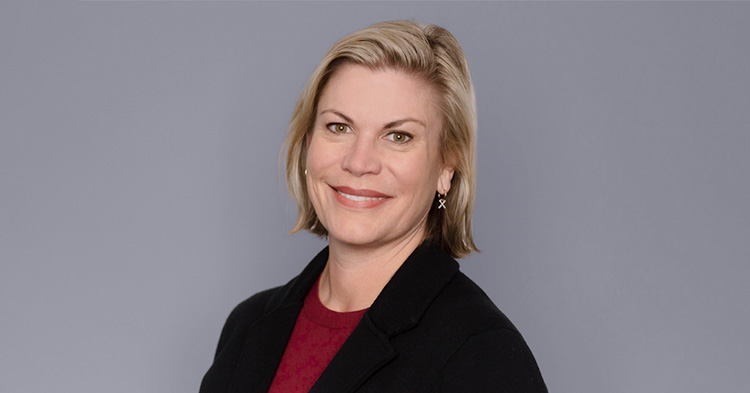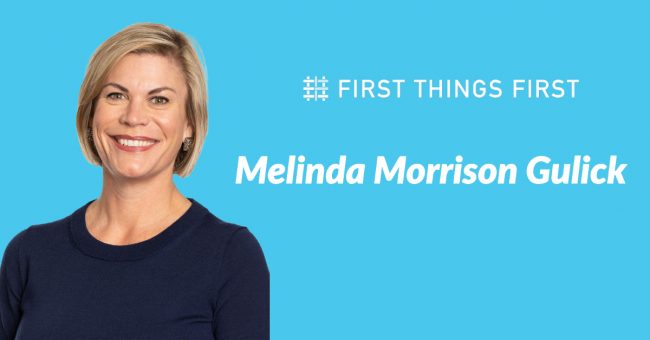
Melinda Morrison Gulick joined First Things First as Chief Executive Officer on March 7. We caught up with Gulick during her early days at FTF to hear about her first impressions and get a glimpse of her future plans.
Question: Where does your passion for early childhood come from?
Answer: My passion for early childhood started when I worked for Southwest Human Development. There were so many people in our community unaware of the importance of early childhood and the value of investing in families with young children. I was so honored to help grow that awareness and secure investments that benefitted the most vulnerable children in our communities. My passion for early childhood grew tenfold when I became the mother of two young boys. Navigating parenthood – with all its twists and turns – reinforced how much support both children and families need to thrive and how much I want to do my part to make that happen.
Q: What are your first impressions of First Things First?
A: First Things First has incredibly knowledgeable staff, deeply committed regional councils, a critical mission and a proven track record improving outcomes for young kids. At the same time, it doesn’t have nearly the resources it needs and too few champions among the decision-makers in our communities. I am excited to change that.
Q: What do you think is the first step in moving the early childhood system forward?
A: Relationships are key – with our staff, our regional councils, our system stakeholders, and those outside early childhood in a position to make a difference. When we all understand each other, and see both the challenges and value in each other’s work, we are in the position to work together toward common goals. By establishing, nurturing and leveraging relationships, I believe we can make huge strides toward realizing our vision of school readiness for all children.
Q: What do you think is the greatest misperception about early childhood programs?
A: That they cost too much; but, that’s so short-sighted. As communities, we are paying more for not investing in young children – more for remediation and special education and then, when failing students become struggling adults, more for social welfare and corrections. The key is helping decision-makers see how early childhood ties to all their priorities – high achieving students, vibrant communities and a thriving economy. Then it’s not an expense; it’s an investment.




